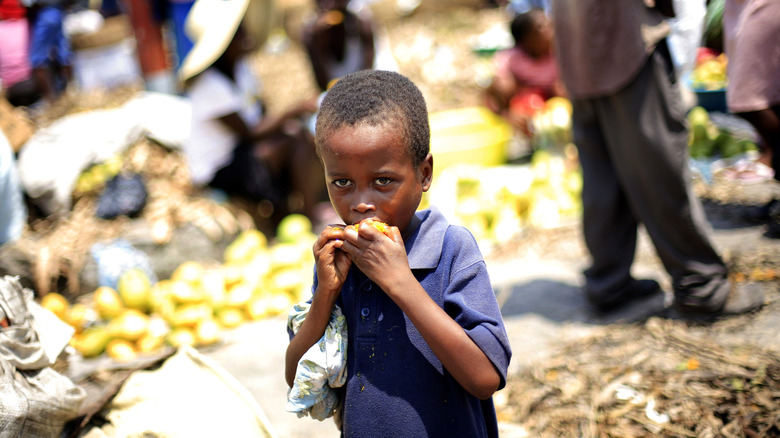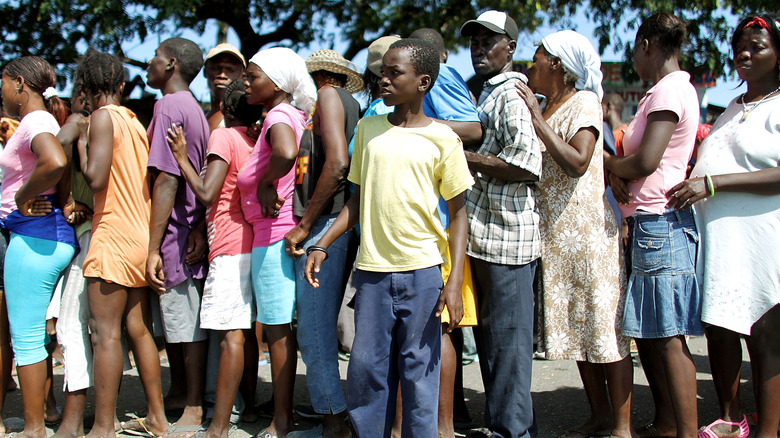The UN Is Cutting Food Aid To Haiti By A Whopping 25%
Although some people venture to the Caribbean seeking a tropical getaway, Haitians do not have the luxurious escape travelers relish. According to the U.N. World Food Program, the country's chronic poverty, unrelenting violence, and other social-economic issues have more than 40% of its 11 million residents facing hunger. While humanitarian aid has offered some assistance to offset the difficulties, a recent announcement has the country bracing for more hardship.
U.S. World and News Report revealed that humanitarian efforts are being slashed even more due to lack of funding. The 25% aid cut will cause 100,000 people to be left without assistance. Jean-Martin Bauer, the U.N.'s World Food Program agency director for Haiti, said, "These cuts could not come at a worse time, as Haitians face a multi-layered humanitarian crisis, their lives and livelihoods upended by violence, insecurity, economic turmoil and climate shocks."
The agency seeks $121 million to fully fund the program for 2023. Currently, the plan is 16% funded. While the entire country is in crisis, a U.N. program notes that 450,000 schoolchildren directly benefit from the free meals. The one hot meal a day is not the perfect solution to food insecurity, but it is a component to offset the growing country-wide problem. Taking away that food source fuels the country's growing malnutrition issue. At present, the U.N. does not offer a funding solution.
Haiti's hunger crisis has been growing at an exuberant rate
In 2022, the U.N. described Haiti's hunger crisis as "a time of tumult." The combination of environmental disasters, economic peril, and increased violence caused catastrophic hunger. While humanitarian efforts sought improvements, a larger, impactful change could make inroads. Unfortunately, lacking government leadership and eroding community programs have strained Haitians' resilient sentiment.
Archbishop Thomas Wenski of Miami told Catholic News Agency, "People can't go to work. People can't work. So you have increasing levels of poverty and food insecurity." Charitable organizations try to improve the scenario with funding and assistance, but the malnutrition and hunger crisis seems to grow faster than aid can provide.
During a CNN discussion, one method to assist Haiti out of its deep despair would be to foster domestic farming. Since 80% of the country's rice is imported, increased food costs only exacerbated food insecurity. Providing a domestic food source could supplement other outside aid programs.
Although the hunger crisis is not a new concern to the island nation, the vicious cycle of negative factors does not allow Haitians to dig out of their hole. Even though some people may have concerns over the proper spending of humanitarian aid, lack of action is not a viable solution either.

